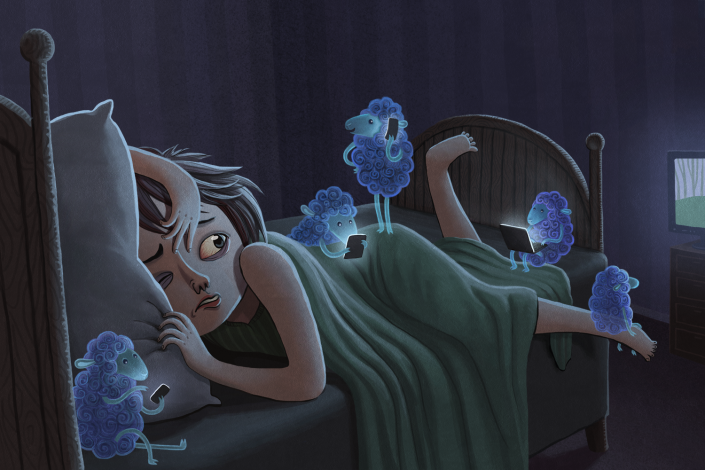Trouble sleeping? Try curbing your use of electronic devices after dark

Illustration: Division of Research
Having trouble sleeping at night? The culprit could be your smartphone, your smart tablet, or even your television, research indicates.
The sun naturally emits blue light. Most electronics also expose us to this wavelength. Recent research shows that artificial blue light tends to delay the human sleep cycle.
Dr. David Earnest, a professor at the Texas A&M Health Science Center College of Medicine, says, “In terms of light and our brains, there is a spectrum of light wavelengths that impacts the human circadian system. Blue light is in the most sensitive side of the spectrum.”
Earnest has conducted extensive research on circadian rhythms and how their disruption may affect human health, and he offers a few options to reduce the effect of blue light on your sleep schedule:
* Implement a ‘no electronics’ rule for bedrooms: Removing computers and other electronics from the bedroom is more conducive to sleep. You are more likely to get a full night’s rest and perform at a higher level during the day.
* Minimize blue light exposure: Buy a pair of amber-lensed sunglasses, which will block all blue light after sunset. These glasses will allow you to use a computer or a phone in the evening without the melatonin-suppressing effects of blue light. Another option is to change the light spectrum on your computer screen. This may be as simple as adjusting your screen settings.
* Adopt a regular sleep schedule: During sleep, our bodies metabolize food and repair muscles, while our brains take a break to prepare for the next day. Maintaining a regular sleep cycle every night could help prevent chronic diseases such as diabetes, obesity, heart disease and even breast cancer.

